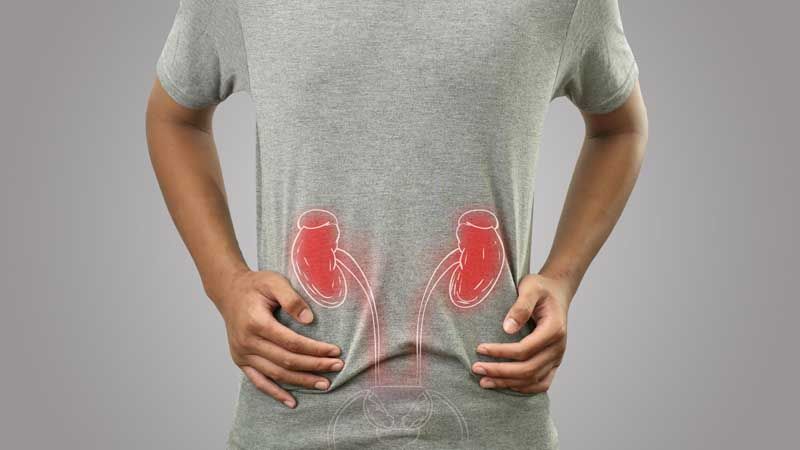Is It Bad To Sleep Right After Eating?
- 7 months ago
We've all been there—finishing a hearty meal and feeling an overwhelming urge to take a nap. But is sleeping right after eating bad for your health? Many believe it can cause weight gain, digestive issues, and even acid reflux.
What Happens When You Sleep After Eating?
When you lie down immediately after eating, your body’s digestion process slows down. This can lead to discomfort, indigestion, and other potential health concerns. Understanding how digestion works can help clarify why it’s not ideal to sleep immediately after eating. The digestive process involves breaking down food into nutrients body absorbs for energy. This process takes time, and lying down too soon can interfere with efficient digestion.

Potential Health Issues
- Acid Reflux & Heartburn – Lying down after eating can cause stomach acid to travel into the esophagus, leading to acid reflux and heartburn. This happens because the lower esophageal sphincter (LES), a muscle that acts as a valve between the stomach and esophagus, relaxes when you recline, allowing acid to escape.
- Slower Digestion – Gravity plays a role in digestion. When you recline, your stomach takes longer to break down food, causing bloating and discomfort. The slower digestion may also contribute to constipation and feelings of sluggishness.
- Weight Gain – While sleeping right after eating won’t directly cause weight gain, late-night snacking combined with inactivity can lead to a calorie surplus and fat accumulation. Additionally, the body’s metabolism slows down during sleep, which can result in inefficient calorie burning.
- Increased Risk of GERD (Gastroesophageal Reflux Disease) – Frequent nighttime acid reflux episodes can contribute to GERD, a chronic digestive disorder. GERD can cause long-term damage to the esophagus, leading to more serious conditions like esophageal ulcers or strictures.
- Sleep Disruptions – Eating heavy or spicy meals before bed can cause restlessness, making it harder to achieve deep sleep. The discomfort from digestion can keep you tossing and turning, affecting sleep quality.
- Impact on Blood Sugar Levels – Eating a large meal, particularly one high in carbohydrates, can spike blood sugar levels. If you go to sleep immediately after eating, your body might not regulate blood sugar efficiently, leading to fluctuations that can disrupt your sleep cycle and potentially contribute to insulin resistance over time.
- Increased Risk of Nighttime Snoring & Sleep Apnea – Eating before bed can increase the likelihood of snoring and worsening sleep apnea symptoms. This happens because digestion can lead to increased pressure in the abdomen, which affects breathing patterns.
How Long Should You Wait Before Sleeping?
It’s generally recommended to wait at least 2–3 hours before lying down after a meal. This allows the stomach to process food effectively and reduces the risk of digestive discomfort. If you have conditions like acid reflux or GERD, waiting even longer—about 3–4 hours—before sleeping is advisable.
Best Practices to Avoid Discomfort
- Eat Light at Night – Choose easily digestible foods in the evening, such as lean proteins, vegetables, and whole grains.
- Stay Upright – Sit or take a short walk after eating instead of lying down immediately. Walking for about 10–15 minutes can help stimulate digestion and regulate blood sugar levels.
- Avoid Heavy & Spicy Foods – These can trigger acid reflux and discomfort. Spicy foods, in particular, can relax the LES and increase stomach acid production.
- Drink Water Wisely – Avoid excessive fluids right before bed to prevent bloating. However, staying hydrated throughout the day supports digestion and overall health.
- Elevate Your Head – If you must sleep, slightly elevate your head with pillows or an adjustable bed to reduce acid reflux risk.
- Practice Portion Control – Overeating can worsen digestive issues and increase discomfort. Smaller, well-balanced meals are easier to digest.
- Establish a Healthy Nighttime Routine – Avoid screens and caffeine close to bedtime, as these can further disrupt sleep patterns.
Are There Any Exceptions?
There are some cases where eating before bed may be beneficial. For instance:
- People with diabetes or hypoglycemia – A small, protein-rich snack before bed may help stabilize blood sugar levels and prevent nighttime hypoglycemia.
- Athletes or individuals with high energy demands – Consuming a balanced snack with protein and complex carbohydrates can aid muscle recovery overnight.
- Those with acid reflux who need to eat early – Some people experience worsened symptoms if they go to bed hungry. A light snack, like yogurt or a banana, might help without triggering acid reflux.
Conclusion
While an occasional post-meal nap won’t do serious harm, making it a habit can lead to digestive discomfort and other health issues. To promote better digestion and sleep quality, give your body enough time to process food before heading to bed. If you often feel the urge to nap after meals, consider adjusting your diet and lifestyle to support better digestion. Next time you feel sleepy after eating, consider a light walk instead of lying down right away. Prioritizing proper meal timing and mindful eating can contribute to overall well-being and better health in the long run.








